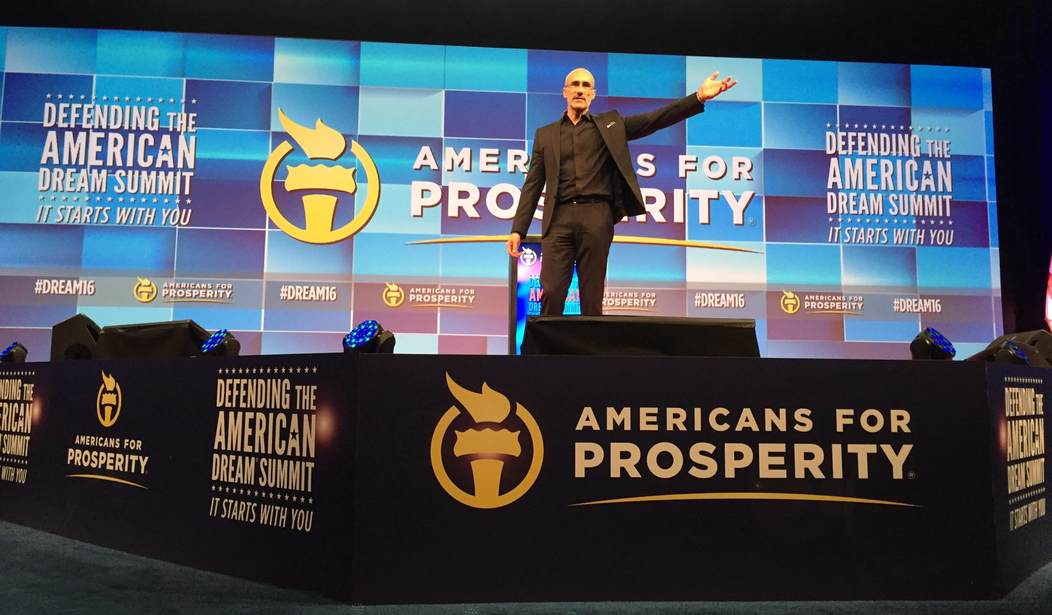President Obama told mourners at a memorial service in Dallas for five fallen police officers that he was there “to insist that we are not as divided as we seem.”
Obama began with anecdotes about each of the officers — Lorne Ahrens, Michael Krol, Michael Smith, Patrick Zamarripa, Brent Thompson — slain last week by a sniper while patrolling a protest against officer-involved shootings.
“We have public servants, police officers, like the men who were taken away from us. And that’s what these five were doing last Thursday when they were assigned to protect and keep orderly a peaceful protest in response to the killing of Alton Sterling of Baton Rouge and Philando Castile of Minnesota,” Obama said. “They were upholding the constitutional rights of this country.”
The president added that both the officer-involved shooting and the attack by Micah Johnson “left us wounded and angry and hurt.”
“The deepest fault lines of our democracy have suddenly been exposed, perhaps even widened. And although we know that such divisions are not new, though they’ve surely been worse in even the recent past, that offers us little comfort,” he said.
Obama said that despite “despair” there’s hope “because I know America; I know how far we’ve come against impossible odds.”
“…These men, this department, this is the America I know. And today in this audience, I see people who have protested on behalf of criminal justice reform grieving alongside police officers. I see people who mourn for the five officers we lost, but also weep for the families of Alton Sterling and Philando Castile. In this audience, I see what’s possible. I see what’s possible when we recognize that we are one American family, all deserving of equal treatment. All deserving equal respect. All children of God. That’s the America I know.”
He noted, though, “how a spirit of unity, born of tragedy, can gradually dissipate, overtaken by the return to business as usual, by inertia and old habits and expediency.”
Obama stressed that “when anyone, no matter how good their intentions may be, paints all police as biased, or bigoted, we undermine those officers that we depend on for our safety.”
“And as for those who use rhetoric suggesting harm to police, even if they don’t act on it themselves, well, they not only make the jobs of police officers even more dangerous, but they do a disservice to the very cause of justice that they claim to promote,” he said.
“We also know that centuries of racial discrimination, of slavery, and subjugation, and Jim Crow; they didn’t simply vanish with the law against segregation. They didn’t necessarily stop when a Dr. King speech, or when the civil rights act or voting rights act were signed. Race relations have improved dramatically in my lifetime. Those who deny it are dishonoring the struggles that helped us achieve that progress.”
The president continued: “But America, we know that bias remains. We know it, whether you are black, or white, or Hispanic, or Asian, or native American, or of Middle Eastern descent, we have all seen this bigotry in our own lives at some point. We’ve heard it at times in our own homes. If we’re honest, perhaps we’ve heard prejudice in our own heads and felt it in our own hearts. We know that. And while some suffer far more under racism’s burden, some feel to a far greater extent discrimination’s stain. Although most of us do our best to guard against it and teach our children better, none of us is entirely innocent. No institution is entirely immune, and that includes our police departments. We know this.”
Obama emphasized that “we cannot simply turn away and dismiss those in peaceful protest as troublemakers or paranoid.”
“We can’t simply dismiss it as a symptom of political correctness or reverse racism,” he said. “To have your experience denied like that, dismissed by those in authority, dismissed perhaps even by your white friends and coworkers and fellow church members, again and again and again, it hurts. Surely we can see that, all of us.”
One of the problems, Obama asserted, is “we flood communities with so many guns that it is easier for a teenager to buy a Glock than get his hands on a computer or even a book.”
“…I am reminded of what the Lord tells Ezekiel. ‘I will give you a new heart,’ the Lord says, ‘and put a new spirit in you. I will remove from you your heart of stone, and give you a heart of flesh.’ That’s what we must pray for, each of us. A new heart. Not a heart of stone, but a heart open to the fears and hopes and challenges of our fellow citizens.”
Obama stressed that “we cannot match” the courage of the fallen officers, “but we can strive to match their devotion.”









Join the conversation as a VIP Member